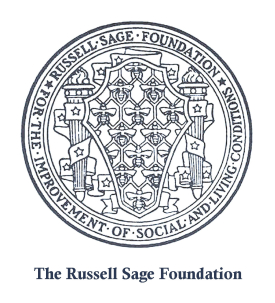About This Book
This booklet discusses how social centers promote reform movements. It notes that social centers provide patriotic education of immigrants through public ceremonies held for their naturalization, civic and health education, the promotion of baby welfare, the elevation of political discussions, and the dignification of voting through the maintenance of balloting booths. The booklet concludes with a list of foundation pamphlets on the topic of the social center.
CLARENCE A. PERRY was an urban planner, sociologist, and educator.
RSF Journal
View Book Series
Sign Up For Our Mailing List
Apply For Funding
About This Book
This booklet presents the draft of the Uniform Small Loan Law, regulating lending in the amounts of $300
RSF Journal
View Book Series
Sign Up For Our Mailing List
Apply For Funding
About This Book
This booklet contains a report of living conditions in Scranton, Pennsylvania, conducted by the Department of Surveys and Exhibits of the Russell Sage Foundation and published by the Century Club of Scranton. It covers the following topics: community assets, education, public health and sanitation, civic improvement, betterment agencies, recreation, taxation and public finance, work conditions and relations, and delinquency.
RSF Journal
View Book Series
Sign Up For Our Mailing List
Apply For Funding

The Exploitation of Pleasure: A Study of Commercial Recreations in New York City
About This Book
This article notes that recreation in the modern city has become a matter of public concern and that the government can no longer take a laissez-faire attitude toward it. In devoting public funds to playgrounds, parks, libraries, and other areas, civic leaders are aware that they are not only providing people with something of positive value but also counteracting negative influences. The article goes on to discuss commercially organized recreations and offers a list of recreational resources in various New York City neighborhoods. It then presents separate sections on the penny arcade, dancing academies and dance halls, meeting halls, theaters, and moving-picture shows.
MICHAEL M. DAVIS, JR., worked for the Department of Child Hygiene at the Russell Sage Foundation.
RSF Journal
View Book Series
Sign Up For Our Mailing List
Apply For Funding
About This Book
This booklet is reprinted from Chapter 117, Session of 190,7 of the Senate and General Assembly of the State of New Jersey (revised at Session of 1908, Chapter 108). It presents New Jersey’s playground law, which permits the mayor of any city in the state to appoint three people from that city to a Board of Playground Commissioners for that city. It goes on to discuss the duties of the board.
RSF Journal
View Book Series
Sign Up For Our Mailing List
Apply For Funding

"The Relation of Playgrounds to Social Centers" and "The Playground and Its Place in the Administration of a City"
About This Book
This booklet contains two articles reprinted from The Playground. The first discusses the obstacles to developing playgrounds in social centers—namely, the narrow views of taxpayers, the clash of selfish interests in playgrounds’ location and distribution, and the hostility of immediate neighbors on account of the noise and disturbance of so many children at play. The second discusses the importance of playgrounds in cities generally.
GEORGE M. FORBES was president of the Board of Education in Rochester, New York.
HIRAM H. EDGERTON was mayor of Rochester, New York, from 1908 to 1921.
RSF Journal
View Book Series
Sign Up For Our Mailing List
Apply For Funding

"Rochester Parks as Playgrounds" and "Playground and Its Place in the Administration of a City"
About This Book
This booklet, reprinted from The Playground, includes two articles: one about how the commissioners of Rochester, New York, inaugurated playgrounds in both larger and smaller parks in the city, and one about the value of playgrounds in cities generally.
ALEXANDER B. LAMBERTON was president of the Board of Park Commissioners of Rochester, New York.
HIRAM H. EDGERTON was the mayor of Rochester, New York, from 1908 to 1921.
RSF Journal
View Book Series
Sign Up For Our Mailing List
Apply For Funding

Massachusetts Playground Referendum for Cities and Towns of over Ten Thousand Inhabitants
About This Book
The text of this booklet was originally published by the Massachusetts Civil League and the Playground Association of America. It discusses an upcoming vote at the next municipal election on the question of providing adequate playgrounds. It provides the text of the proposed act creating such playgrounds, discusses the reasons for having playgrounds, and provides quotations from playground advocates, including President Theodore Roosevelt, Hull House founder Jane Addams, and writer Ralph Waldo Emerson.
JOSEPH LEE was a social worker and philanthropist.
RSF Journal
View Book Series
Sign Up For Our Mailing List
Apply For Funding
Pagination
- Previous page
- Page 4
- Next page
